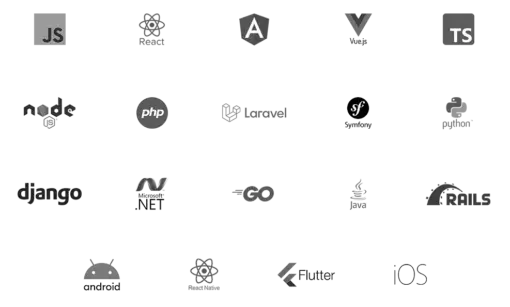Cybersecurity Excellence Starts Here! Fortify Your Digital Defense!
Hire a Dedicated Security Engineer Today and Safeguard Your Business Against Cyber Threats.
Discover top-tier security engineers seamlessly with our IT staff augmentation services, ensuring your team is fortified against cyber threats. Elevate your security posture by hiring skilled professionals who specialize in safeguarding your digital assets.
Elevating the security of your IT infrastructure to the pinnacle of your priorities is imperative in an era dominated by digital advancements and cyber threats. To fortify your defenses and ensure a proactive stance against potential risks, consider hiring a skilled security engineer.
Security engineer professionals bring specialized expertise to the table, helping you design and implement robust security protocols tailored to your organization’s needs. Their role extends beyond mere technological solutions, encompassing a holistic understanding of potential vulnerabilities and the ability to develop and enforce comprehensive security policies.
Security engineers take on roles and responsibilities such as:
By making the investment in a dedicated security engineer, you not only enhance the resilience of your IT infrastructure but also signal a commitment to safeguarding sensitive data.
Thus maintaining operational continuity, and fortifying the trust of your stakeholders in an ever-evolving digital landscape.
Security engineers use a variety of tools to assess, protect, and monitor the security of systems and networks. Here are some commonly used tools in the field of security engineering:
And so much more. These tools depend on the specific needs and requirements of their organization.
Security engineers are in demand across various organizations and industries, as cybersecurity is a critical aspect of modern business operations. Here are some industries and types of organizations that often hire security engineers:
These are just a few examples. The demand for security engineers is widespread across almost every industry where digital information is involved.
Hiring managers you can pick from a wide range of different types of security engineers to join your team on a staffing basis.
A network security engineer is a professional responsible for safeguarding an organization’s computer systems, networks, and data against cyber threats and unauthorized access. These highly skilled individuals play a crucial role in designing, implementing, and maintaining security measures to protect sensitive information from potential breaches.
Network security engineers utilize a combination of technical expertise and strategic thinking to create robust defense mechanisms, including:
They stay abreast of the latest cyber threats and vulnerabilities, constantly adapting security measures to counter emerging risks.
Additionally, network security engineers often:
Their work is integral to maintaining the integrity, confidentiality, and availability of digital assets within an organization, contributing significantly to overall information security.
An Information Security Engineer is a professional dedicated to ensuring the confidentiality, integrity, and availability of an organization’s information assets. These skilled individuals design, implement, and manage security measures to protect sensitive data from unauthorized access, disclosure, alteration, and destruction.
Information Security Engineers employ a comprehensive approach, including:
Technical safeguards such as:
They continuously monitor and analyze security threats, staying informed about the latest cyber risks and vulnerabilities.
In addition to proactively preventing security incidents, Information Security Engineers also play a crucial role in responding to and mitigating any breaches or incidents that may occur.
Collaboration with other IT professionals, ongoing training, and keeping abreast of evolving security technologies are integral aspects of their role. Ultimately, Information Security Engineers are essential in fortifying an organization’s digital infrastructure against the ever-evolving landscape of cyber threats.
An Application Security Engineer is a professional focused on safeguarding the security of software applications throughout their development life cycle. These engineers specialize in identifying and mitigating vulnerabilities and weaknesses in applications to protect against potential cyber threats and unauthorized access. They work closely with development teams, employing both manual and automated testing techniques to identify security flaws in code, architecture, and design.
Application Security Engineers are adept at conducting risk assessments, implementing security best practices, and integrating security measures directly into the software development process. Their responsibilities include performing code reviews, penetration testing, and collaborating with developers to address and remediate security issues.
Additionally, Application Security Engineers stay informed about emerging threats and industry best practices to ensure that applications are resilient in the face of evolving security challenges. Their work contributes significantly to creating robust and secure software applications in an increasingly interconnected digital landscape.
A Cloud Security Engineer is a professional responsible for designing, implementing, and managing security measures to protect cloud-based environments and the data stored within them. These engineers focus on ensuring the confidentiality, integrity, and availability of information in cloud platforms. They work with cloud service providers and internal teams to establish and enforce security policies, access controls, and encryption mechanisms.
Cloud Security Engineers address the unique challenges posed by cloud computing, such as:
Their responsibilities include configuring and monitoring security features within cloud services, conducting risk assessments, and implementing identity and access management solutions.
Additionally, Cloud Security Engineers stay abreast of the latest security threats and evolving cloud technologies to adapt and enhance security measures accordingly. With the increasing adoption of cloud services, these professionals play a crucial role in safeguarding sensitive information and ensuring the secure operation of organizations’ digital assets in the cloud.
A Security Operations Center (SOC) Engineer is a cybersecurity professional responsible for monitoring and responding to security incidents within an organization. These engineers operate within a Security Operations Center, a centralized unit that oversees the security of an organization’s IT infrastructure.
SOC Engineers utilize advanced security technologies, including:
Their role involves continuous monitoring of security alerts, investigating incidents, and implementing incident response measures to mitigate and contain security breaches. SOC Engineers work closely with other cybersecurity professionals, collaborate with IT teams, and contribute to the development of incident response plans and security protocols. Their proactive stance and ability to analyze and respond swiftly to security incidents are crucial in maintaining the overall cybersecurity posture of an organization. The work of SOC Engineers is vital in protecting sensitive information, maintaining system integrity, and ensuring the resilience of an organization’s digital infrastructure against a dynamic threat landscape.
A Cybersecurity Architect is a highly skilled professional responsible for designing and implementing comprehensive security solutions to protect an organization’s information systems and digital assets. These architects possess a deep understanding of cybersecurity principles, risk management, and technology infrastructure. They work collaboratively with various stakeholders, including IT teams, executives, and other security professionals, to develop and implement security architectures that align with business goals.
Cybersecurity Architects evaluate existing systems, identify vulnerabilities, and design robust security frameworks that encompass technologies such as:
They also play a crucial role in defining security policies, conducting risk assessments, and ensuring compliance with industry regulations.
Continuous monitoring of emerging threats and evolving security technologies is essential for Cybersecurity Architects to adapt and enhance security measures accordingly. Their expertise is pivotal in establishing a resilient cybersecurity foundation that safeguards critical assets and enables organizations to navigate the complexities of an ever-changing threat landscape.
Our staff augmentation services offer a wide range of tech stack solutions and developers. We have front-end developers, back-end developers, dedicated mobile app developers, and niche developers. Our developers have a seniority level from regular to senior. Moreover, we can also provide you with Junior Developers or Tech Leaders.
We recognize that our clients want software solutions that work for years to come without going obsolete. That’s why our IT talent uses only the latest, most reliable tools and technologies out there to create websites, e-commerce stores, mobile apps, and web applications.
Some technologies our development team uses include JavaScript, React, Angular, Vue, TypeScript, Node, PHP, Laravel, Symfony, Python, Django, .net, GO, Java, Android, iOS, React Native, and Flutter. We also have developers who specialize in Artificial Intelligence, Machine Learning, the Internet of Things, Security, and Automation. This way you can keep up with the latest tech trends & stay competitive.
Learn More
Lend out security engineers using IT staffing. Hiring security software engineers is an eight-step process. This process includes searching for niche coders to fill the skill gap, scheduling interviews, and drawing up contracts.
Learn MoreAre you worried that the security software engineer you hire won’t be the right fit and you’ll lose money? We have a solution! We offer a risk-free trial period that lasts two weeks giving you a safeguard in case something changes or is not working out.
Learn MoreCheck out some answers to your most frequently asked questions about hiring security engineers.
Learn MoreThe distinction between a security engineer and a cybersecurity specialist lies in their primary areas of focus within the broader realm of cybersecurity.
A security engineer primarily concentrates on:
Their responsibilities encompass configuring and managing security technologies, ensuring the integration of security measures into the overall IT infrastructure, and addressing technical aspects such as firewall configurations and encryption protocols.
On the other hand, a cybersecurity specialist is a more encompassing term that spans various roles within the cybersecurity domain. While a cybersecurity specialist can include security engineers, it extends beyond roles like incident response, threat intelligence, penetration testing, and security analysis. Cybersecurity specialists may be involved in:
In essence, a security engineer is often a specific technical role focused on engineering secure systems, while a cybersecurity specialist has a broader scope that encompasses diverse aspects of cybersecurity expertise.
A proficient security engineer must possess a combination of hard and soft skills to effectively safeguard digital infrastructures.
On the hard skills front, expertise in network security is paramount, encompassing a deep understanding of firewalls, intrusion detection systems, and encryption protocols. Additionally, proficiency in penetration testing and vulnerability assessment tools is crucial for identifying and addressing potential weaknesses in a system. Knowledge of programming languages like Python or scripting languages is also essential for creating custom tools and automating security processes.
On the softer side, excellent communication skills are vital for translating complex security concepts into understandable terms for diverse stakeholders. Problem-solving skills are equally important, enabling security engineers to think strategically and respond promptly to emerging threats. Finally, a security engineer must exhibit a high level of adaptability, staying abreast of the rapidly evolving cybersecurity landscape and continuously updating their skill set to counter emerging threats.
The rate to hire one of our developers on an augmented staffing basis varies on the type of expert and seniority level. Our hourly rates range from $15 to $60 per hour. So for example, $15 per hour is for a developer that is at the junior level, whereas, $60 per hour would get you a developer who has high seniority. This would be a developer that specializes in a technology that is in high demand on the market. Moreover, this would be someone who could do more than just code your project, they would be a Tech Leader, meaning they could help with organizing or managing tasks.
Learn more about the price of staff augmentation

I cannot speak more highly of the Swyply developers. They have been incredible in how fast they delivered extremely high-quality code, with little to no need for QA. Not only did they deliver on everything that we had spec’ed out, but they also implemented significant improvements on their own. Cannot recommend them enough!
 Dan PilatCo-Founder at The Decision Lab
Dan PilatCo-Founder at The Decision Lab
Swyply developers are great to work with, reliable, effective, and high quality. Their communication and responsiveness are excellent and we’ve really valued working with them. Highly recommended!
 Gordon McLachlanManaging Director of Primate
Gordon McLachlanManaging Director of Primate
Swyply developers have always been a pleasure to work with. They listen carefully to the project requirements, but also offer invaluable feedback and suggestions. I found Swyply efficient, reliable and professional.
 Jowita EmbertonCEO & Founder at Brandpa
Jowita EmbertonCEO & Founder at Brandpa
Elevate your defenses and stay ahead of cyber threats with security engineers!